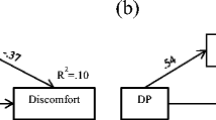Abstract
Professional ethics, a contemporary topic of conversation among business professionals, is discussed using the perceptions of college business students as the focal point. This research relates to the issues of college instruction in professional ethics, differences in perceptions of ethical behavior attributed to gender, and whether or not students' perceptions of ethical behavior can be modified. After presenting a review of the more important historical developments and research related to professional ethics, this paper focuses on the results of a study that compared a set of ethical responses of various groups of college students with each other. The results of hypotheses testing show an ethics maturation process from students' initial exposure to business courses through the graduate level. These tests also show that formal ethics training, i.e., a separate professional ethics course or unit is an existing course, is not a significant factor in this process. However, one may conclude that the students' perceptions of proper ethical behavior matures toward society's expectations during college life.
Similar content being viewed by others
References
Arlow, P. and T. A. Ulrich: 1983, ‘Can Ethics be Taught to Business Students?’, The Collegiate Forum (Spring), p. 17.
Berenbeim, R. E.: 1988, ‘An Outbreak of Ethics’, Across the Board (May), pp. 14–19.
Cherrington, J. O., and D. J. Cherrington: 1979, ‘Honesty and Business Ethics in the Accounting Profession’, Collected Papers of the Annual American Accounting Association Meeting (August), pp. 645–658.
Cohen, J. R. and W. Pant: 1989, ‘Accounting Educators' Perceptions of Ethics in the Curriculum’, Issues in Accounting Education (Spring), pp. 70–77.
Finn, D. W., L. B. Chonko, and S. D. Hunt: 1988, ‘Ethical Problems in Public Accounting: The View from the Top’, Journal of Business Ethics (July), pp. 605–615.
Forisha, B. E. and B. E. Forisha: 1976, Moral Development and Education (Professional Educators Publications, Inc., Lincoln, Nebraska).
Fulmer, W. E., and B. R. Cargile: 1987, ‘Ethical Perceptions of Accounting Students: Does Exposure to a Code of Professional Ethics Help?’, Issues in Accounting Education (Fall), pp. 207–219.
Genfan, H.: 1987, ‘Formalizing Business Ethics’, Training and Development Journal (November), pp. 35–37.
Goddard, R. W.: 1988, ‘Are You an Ethical Manager?’, Personnel Journal (March), pp. 38–47.
Kahalas, H., D. L. Groves, and T. W. Bonham: 1977, ‘Importance of Honesty as a Value Factor for Business Students’, College Student Journal, pp. 112–117.
Kohlberg, L.: 1973, ‘Collected Papers on Moral Development and Moral Education’, (Laboratory of Human Development, Harvard University).
Kohlberg, L.: 1976, ‘Moral Stages and Moralization: The Cognitive-Developmental Approach’, in Moral Development and Behavior: Theory, Research, and Social Issues, ed. by Thomas Lickona (Holt, Rinehart and Winston, New York), pp. 34–35.
Kohlberg, L. and R. Mayer: 1972, ‘Development as the Aim of Education’, Harvard Educational Review, vol 42 no 4, pp. 449–496.
Lane, M. S., D. Schaupp, and B. Parsons: 1988, ‘Pygmalion Effect: An Issue for Business Education and Ethics’, Journal of Business Ethics 7, pp. 223–229.
Modic, S. J.: 1987, ‘Corporate Ethics: From Commandments to Commitment’, Industry Week (December), pp. 33–36.
Peppers, D.: 1988, ‘Make Money. Have Fun. Be Ethical’, New York Times (July 24), sec. 3, p. 3.
Purcell, T.: 1985, ‘Institutionalizing Business Ethics: A Case History’, Business and Professional Ethics Journal 4, no. 2, pp. 39–51.
Rohatyn, F. G.: 1987, ‘Ethics in America's Money Culture’, New York Times (June 3), p. A27.
Superka, D.: 1976, Values Education Sourcebook, (Social Sciences Consortium, Bolder, Colorado).
Thurow, Lester C.: 1987, ‘Ethics Doesn't Start in Business Schools’, New York Times, (June 14), p. E25.
Touche Ross & Co.: 1988, Ethics in American Business: A Special Report, (Touche Ross & Co., New York).
White, Kathleen M.: 1980, ‘Problems and Characteristics of College Students’, Adolescence, (Spring), pp. 23–41.
Author information
Authors and Affiliations
Additional information
James R. Davis is a Professor of Accountancy at Clemson University. He has published articles on professional ethics and made several presentations on the subject at professional meetings. Currently he is evaluating the different attitudes toward professional ethics of students in different international environments.
Ralph E. Welton, Jr. is an Associate Professor of Accounting at Clemson University. He teaches a graduate course on the accounting environment which includes units on professional ethics and legal responsibilities of accounting professionals. His research interests include comparative international perceptions of business ethics and the individual's longitudinal ethics development.
Rights and permissions
About this article
Cite this article
Davis, J.R., Welton, R.E. Professional ethics: Business students' perceptions. J Bus Ethics 10, 451–463 (1991). https://doi.org/10.1007/BF00382829
Issue Date:
DOI: https://doi.org/10.1007/BF00382829




